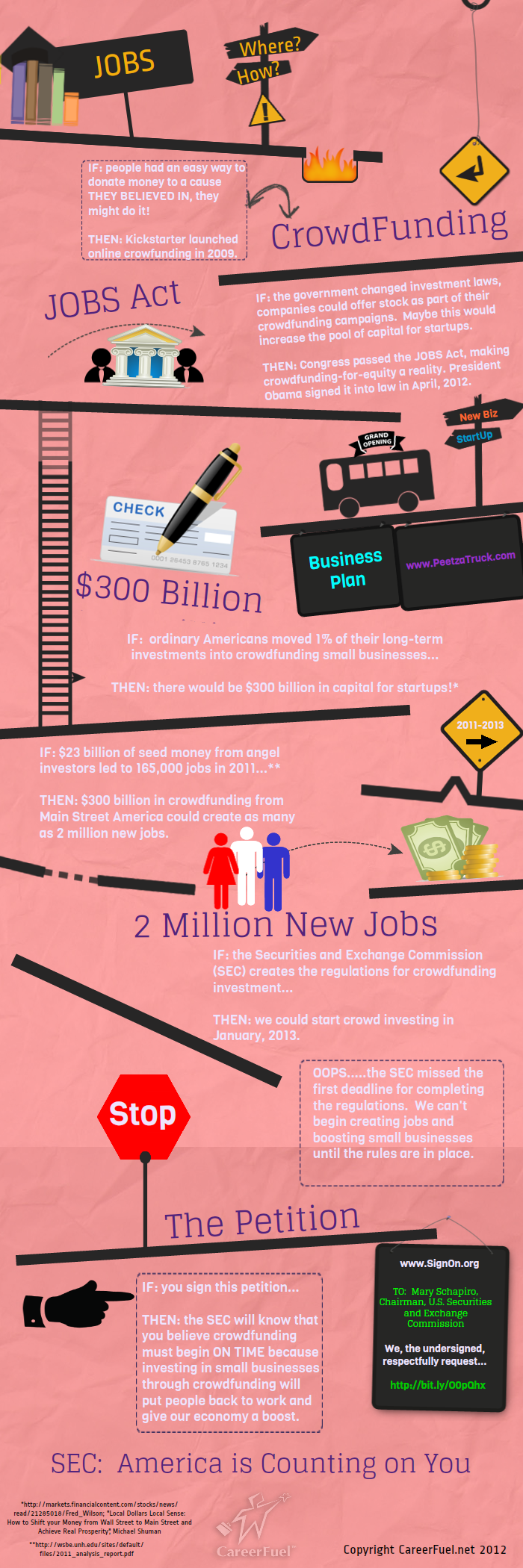By: AnnMarie McIlwain
EquityNet.com, a crowdfunding platform that enables entrepreneurs to raise money from accredited investors, just released findings from a six-year study of their transactions (1,000 completed deals) and the findings are very interesting. If you have considered raising money and wonder if your company is fundable and under what terms, read on.
*Consumer and business product/service companies are popular, accounting for over 40% of equity crowdfunding activity. These are industries previously underserved by traditional venture capital.
*More than half of the completed deals are businesses in the middle of the U.S., not the coasts. Net, you don’t have to be in the Alley (NY) or the Valley (CA) to get funded.
*The fundraising amounts aren’t that big. Around 50% of businesses that use equity crowdfunding seek less than $500,000 in investment capital.
*Valuations are low and vary widely in equity crowdfunding with approximately 40% of pre-money valuations under $1,000,000.
*Investors own 20-30% of the company in the majority of deals. The lowest raises (less than $100,000) led to the highest investor ownership, as one would expect, with a median of 33%. For investment amounts between $100,000 and $500,000, the median investor ownership was 20%.
*The deals were closed pretty fast. Two months was the median length of a fundraising round according to Judd Hollas, CEO of EquityNet.
*Most businesses (70%) do not have revenue, but 75% of those zero revenue businesses expect to generate revenue in their current fiscal year. This suggests that the majority of the businesses are early stage companies and at the revenue-inflection point.
*Few (15%) businesses are currently profitable, and 90% of the remainder predict that they will be profitable in three years or less.
*Only 1 in 10 businesses have patents or patent applications for proprietary technology indicating that businesses do not have to have intellectual property to be considered fundable.
*More than half of the businesses seeking funds are legally structured as LLCsreflecting the growing use of this cost-effective corporate structure.
This means that investors are funding early-stage companies of many kinds and they are not taking a ridiculous bite out of the founder’s equity. That is good news for those businesses seeking capital while the regulations are being written for the JOBS Act legislation, signed into law last year. Once done, entrepreneurs will be able to ask unaccredited investors (friends, neighbors, relatives) to help fund their business too, further increasing the likelihood of fundraising success. The maximum raise will be $1 million.
For raises higher than $1 million, entrepreneurs will have to continue to do a private placement (otherwise known as a Reg D offering) through platforms like EquityNet or others. Additional platforms will be launching in anticipation of the JOBS Act regulations. Once complete, these platforms will, for the first time, be able to advertise investment opportunities to accredited investors, thus expanding the market of investors and fundraising potential.
For a primer on securities-based crowdfunding, this video features Tom Szaky, a 30-year-old successful entrepreneur with a high growth, $15 million business. He describes how this new avenue for fundraising could have helped him when he started out 10 years ago and how crowdfunding for equity may democratize the investment upside of early-stage companies.
Read the full story: http://careerfuel.net/?p=7899





